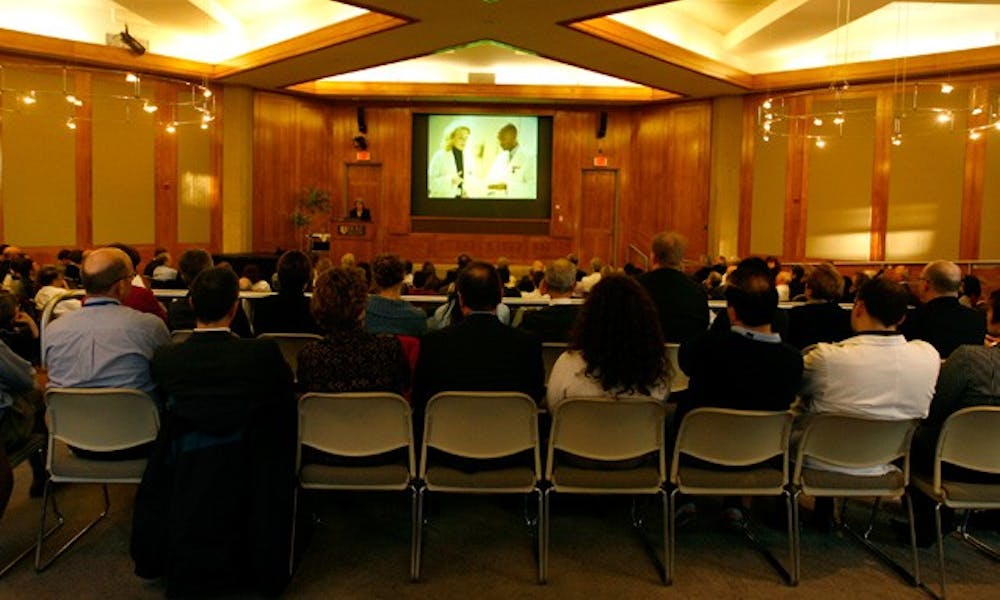The Medical School hopes to balance a budget and a vision in the coming year.
Dr. Nancy Andrews, vice chancellor for academic affairs and dean of the School of Medicine, spoke to students, faculty and administrators in the annual State of the Medical School address Thursday. Andrews encouraged optimism for the school and health system in 2010, her third year serving as dean.
“Budget challenges and a continual volatility of the economy will be our companion moving forward,” Andrews said. She added that administrators must juxtapose careful fiscal management and new initiatives that will carry the institution.
Andrews said there will be a $75 million backstop fund for support in the case of a future economic crisis.
She discussed primary goals of the medical school, which include the construction of a new School of Medicine Learning Center, approved in May 2009. The center will be funded by a $35 million donation from the Charlotte-based Duke Endowment as well as an initiative to raise $15 million from alumni. It will aim to reshape medical education with a focus on team-based learning, interdisciplinary education and an increased use of technology.
Andrews noted the advantages of implementing virtual learning environments, where students can practice administering medical care through a video game-like simulation.
She also elaborated on a new faculty recruiting initiative. Andrews said she hopes to attract two recruits each year who will work across departments, complementing existing research initiatives, citing the collaboration on hepatitis C research between David Goldstein, director of the Center for Human Genome Variation, and John McHutchison, associate director of the Duke Clinical Research Institute.
“It’s great to see these collaborations emerge organically, and I’m committed to helping advance them when they do,” she said.
Andrews said she wishes to increase the number of underrepresented minority faculty members, such as women. Diversity is apparent in medical school classes, she said, but faculty and leadership can be more diversified. She later added that the medical school is not as effective as other institutions at recruiting female faculty, although Duke is the only top-10 medical school with a female dean. Andrews has appointed two female department chairs as deans.
In addition, Andrews noted the importance of looking beyond Duke’s campus to Durham and the rest of the world. She highlighted the Durham Health Innovations initiative as a model for how an academic medical center can partner with its community to improve health and wellness. She added that the medical school will likely have a role in the University’s expansion in China.
Correction: An earlier version of this article incorrectly identified David Goldstein as the director of Duke Institute for Genome Sciences and Policy. The Chronicle regrets the error.
Get The Chronicle straight to your inbox
Signup for our weekly newsletter. Cancel at any time.

